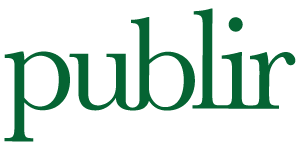1. Microsoft Joins Coalition Of European Publishers To Mandate News Payments (MediaPost)
Microsoft is teaming up with European publishers to push for a system to make big tech platforms pay for news, raising the stakes in the brewing battle led by Australia to get Google and Facebook to pay for journalism. The Seattle-based company along with four big European Union news industry groups unveiled their plan on Monday to work together on a solution to “mandate payments” for use of news content from online “gatekeepers with dominant market power.”
2. Facebook Reaches Deal With Australia To Restore News (Wall Street Journal)
Facebook Inc. said it reached an agreement with the Australian government to restore news pages to the social-media company’s platform, following a five-day hiatus locally due to a disagreement over payment for content. Facebook removed news from its platform in Australia last week, as legislation that would effectively require Facebook and Alphabet Inc.’s Google to pay traditional media companies for content worked its way through the country’s Parliament.
3. Google To Lift Ban On Political Ads This Week (Axios)
Google is set to resume accepting political ads on all its platforms after temporarily blocking them following the US Capitol riot in January. Advertisers will be allowed to run political ads on Google starting Wednesday. Resuming political ads on the search giant means the sensitive events policy put in place last month has been lifted.
4. Big Tech CEOs To Face Heat Of The Antitrust Investigation (Washington Post)
Tech companies, including Amazon, Apple, Facebook, and Google have to face intensified grilling of the House judiciary’s antitrust subcommittee in March for wielding excessive powers including, curbing competition, the engine of the American economy, spreading fake news, and censoring political speech.
5. Virginia Passes Privacy Law Backed By Tech Companies (MediaPost)
The Virginia Consumer Data Protection Act (SB 1392), much like California’s Consumer Privacy Act, requires companies to allow consumers to access, correct, and delete personal data. The bill gives consumers the right to opt-out of the use of non-sensitive data for targeted advertising and requires companies to obtain consumers’ affirmative consent before processing “sensitive” data – including information about the race, religious beliefs, health, sexual orientation, or immigration status, as well as precise geolocation information and some biometric data.
6. IAB’s Framework Is The Best Option For programmatic Ad Marketplace To Continue (Digiday)
Even after a year since the enactment of the California Consumer Privacy Act, publishers, and programmatic ad sellers have no consensus in interpreting it. While the New York Times took a conservative approach in adhering to it, Ad management firms like CafeMedia are considering it too ambiguous and taking it in a lighter vein. While the state privacy law insists publishers not to sell personal information, publishers are using the IAB’s CCPA compliance framework, considering that may not put them at risk of non-compliance.
NBCUniversal, WarnerMedia, Disney, Discovery, ViacomCBS, and A+E Networks have to continue their respective cable portfolios in the near future as they are enjoying a steady stream of ad revenue and cable user charges despite the growing popularity for streaming services. In addition to consistent revenue, cable networks also give their respective parent companies a big marketing advantage and access to their distinct audiences.
